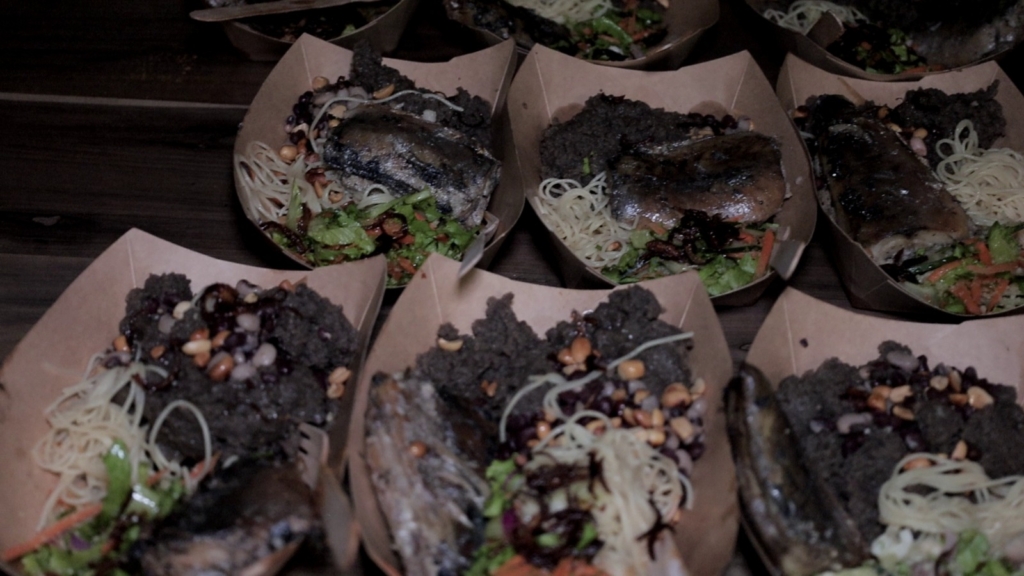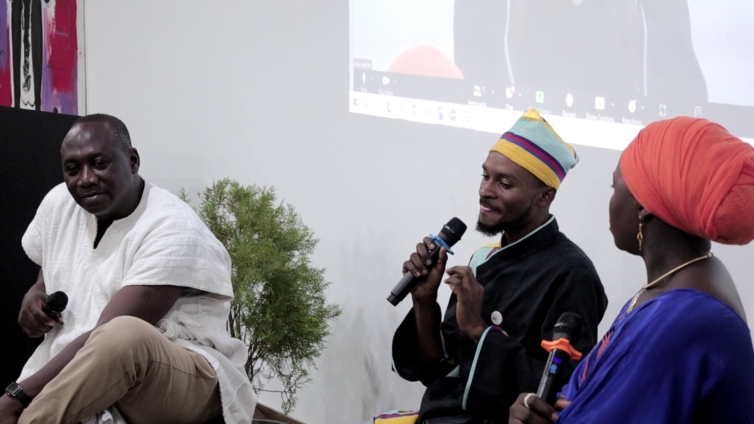An event celebrating Northern Ghana's indigenous cuisine brought together enthusiasts of local food in Accra.
The gathering aimed at promoting indigenous food from Northern Ghana united the enthusiasts to commemorate these culinary delights and advocate for their preservation.
Despite Ghana's rich culinary heritage, it often remains overlooked. Hence, the collaboration between the Ghana Food Movement (GFM), the University of Toronto and the University for Development Studies seeks to change this narrative. By celebrating indigenous food, the event delves into unexplored gastronomic potentials and shines the spotlight on culinary marvels.
Featuring a diverse selection of indigenous dishes, each with its own narrative, the event took patrons on a gastronomic journey spanning from the vibrant spices of the South to the hearty cuisines of the North of Ghana, showcasing the diverse and rich food culture.

Leading experts, chefs, and food enthusiasts discussed the untapped potential of Ghana's food system. From sustainable farming practices to innovative food startups, the event showcased the opportunities that can transform the country's food industry.
The event highlighted opportunities ranging from sustainable agricultural methods to innovative food startups, aiming to revolutionise the nation's culinary landscape.
With a focus on promoting local sourcing and sustainable practices, discussions at the event centered on farm-to-table movements, advocating for their widespread adoption throughout the country.
Beyond food, cultural elements such as traditional music and dance enriched the experience, offering attendees a holistic glimpse into Ghana's vibrant heritage.

Professor Jasper Abembia Ayelazuno from the University for Development Studies underscored the necessity of encouraging individuals to cultivate and consume culturally appropriate foods.
He emphasised the unfortunate trend of Africans, particularly Ghanaians, moving away from their nutritious and healthier indigenous cuisine.
"This event is incredibly significant as it allows us to forge partnerships to advocate for food sovereignty," he remarked. Professor Jasper highlighted that experts and activists, including organisations like the Ghana Food Movement, are working tirelessly to ensure that indigenous foods are not lost amidst the ongoing food revolution.
He cited examples such as TZ, a traditional dish he personally enjoys daily, but noted that the younger generation often prefers fried rice and instant noodles (Indomie) to traditional dishes like TZ.
"Every time I travel to Canada, my suitcase is packed with TZ ingredients," he shared.

Ghana's rich indigenous food culture is a point of national pride, yet it often takes a back seat to international culinary trends. The event offered a platform to showcase the diverse, delectable, and frequently overlooked facets of the country's culinary heritage. It's more than just an event; it's a movement dedicated to celebrating, advocating for, and safeguarding the wealth of Ghana's gastronomy.
Chef Abiro and Chef Kwame Fia-Foli from the Ghana Food Movement shared their journeys in promoting indigenous foods and encouraged the participants to develop interests in cooking or eating these foods.
They were convinced that each participant at the events holds a crucial role in driving the much-needed transformation of the food industry.
Aimee Wallin, co-director of the Ghana Food Movement, expressed excitement about the events, emphasizing that everyone has a part to play in preserving indigenous foods in Ghana and Africa. Aimee highlighted that indigenous foods are not only the most delicious but also healthier for consumption, benefiting the body system.
Attendees at the event shared their sentiments as they savored cooked indigenous foods provided to their delight. Additionally, participants were treated to a short film showcasing Northern Culinary delights, adding to the immersive experience of the event.
Latest Stories
-
Bawumia arranged sureties for Wontumi’s release – Hassan Tampuli claims
2 minutes -
Wontumi’s bail varying application was instructed by his wife – Tampuli
9 minutes -
Manner of Wontumi’s EOCO arrest needless and avoidable – Bomfeh
39 minutes -
If the state failed to act yesterday, it is today – Dafeamekpor on Wontumi’s arrest
43 minutes -
There seems to be conflict about who represents Wontumi – Dr Kojo Asante
47 minutes -
Wontumi’s EOCO arrest and detention violates constitution – Hassan Tampuli
2 hours -
Weakening Dollar: An Opportunity for Developing Economies to Grow
2 hours -
Livestream: Newsfile discussing Wontumi’s detention, CJ removal case
3 hours -
One Million Coders’ Programme to train youth in AI, Cybersecurity – Omane Boamah to LSE Forum
3 hours -
Africa stands at a crossroads of possibility – Dr Omane Boamah tells LSE Forum
3 hours -
Operations at Maaha Beach Resort remain unaffected in spite of devastating fire incident
3 hours -
Africa must shape its future; not sit on the sidelines – Omane Boamah tells LSE Forum
3 hours -
I’ll stay out of the politics and theatrics – Wontumi’s lawyer
4 hours -
Augusco beats Mfantsipim to clinch Central Region Table Tennis trophy
4 hours -
Liverpool sign Jeremie Frimpong from Leverkusen for £29.5m
5 hours

